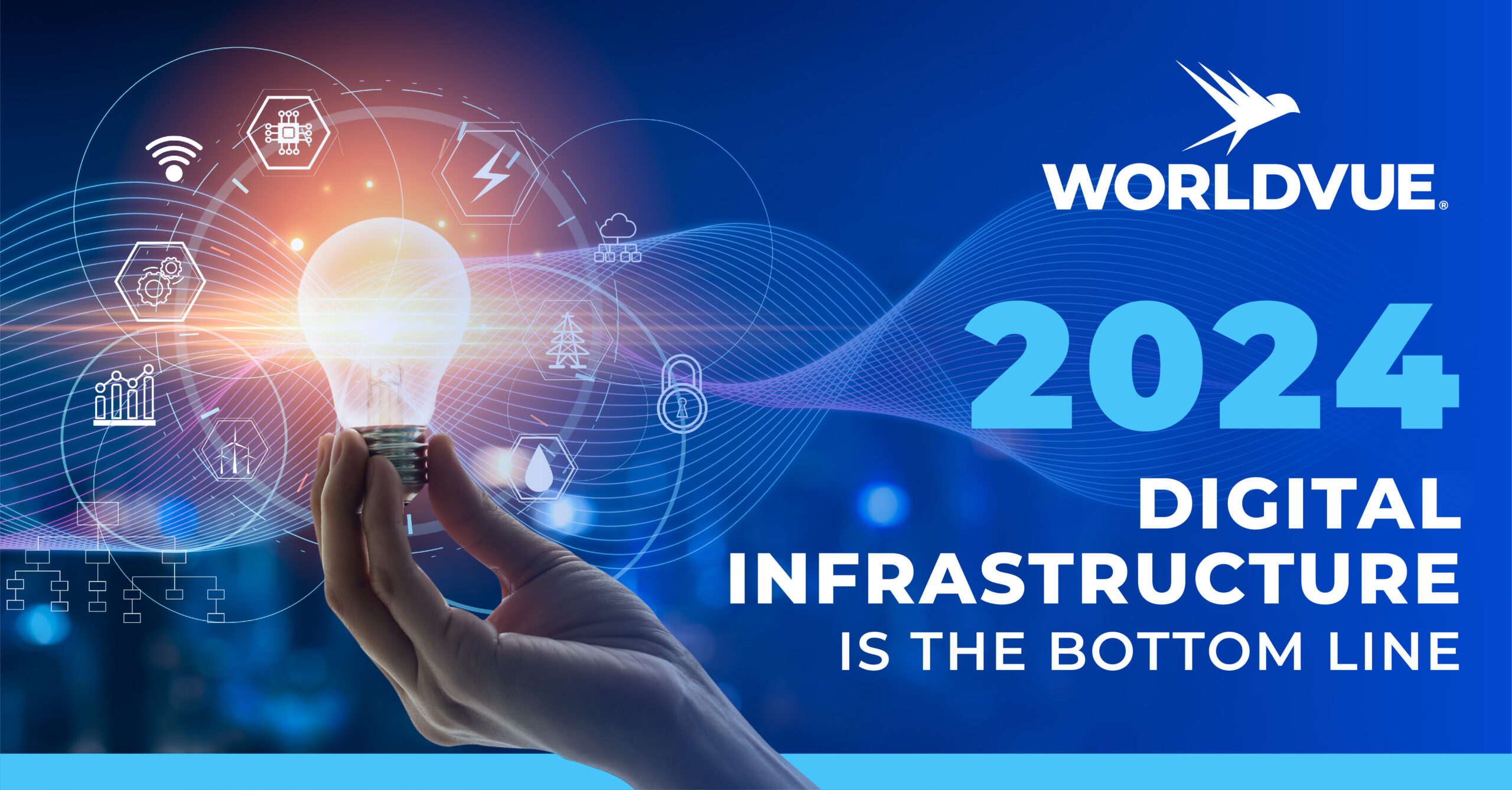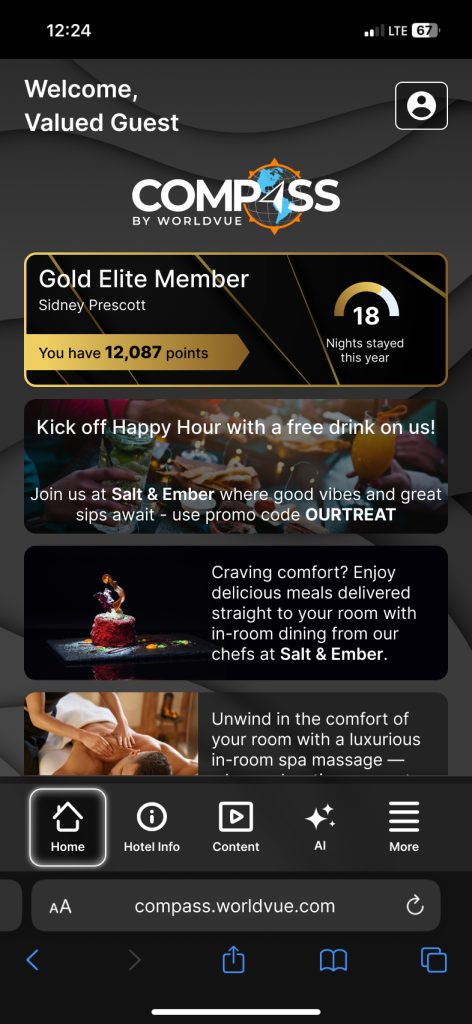Table of Contents
- What have been the biggest challenges in 2023, and how will technology help address those challenges in 2024?
- How is the general technology landscape changing as we move into 2024?
- What will guests and residents be looking for in 2024, and how can technology help address those expectations?
- What hotel/residential technology development(s) are you most excited about in 2024 and beyond?
- What do property owners/GMs need to watch out for in 2024 in terms of their technology solutions and infrastructure?
- If you had to choose only one technology for hotels and residential properties to invest in for 2024, what would that be and why?
- Here are some helpful links to learn more
As we close out 2023, many property owners and managers are considering technology investments for 2024. But what are the key 2024 technology trends for hospitality and residential properties? What investments will be most beneficial to improve the guest/resident experience? And how will technology help to solve business challenges in the hospitality and residential markets?
To answer these questions, our two-part series offers helpful advice based on our expertise and data from 2023. In Part 1, we present insights from our leadership team, including our President and COO, Robert Grosz; EVP and CTO Nick Jones; and SVP and CIO Mark Schaps.
What have been the biggest challenges in 2023, and how will technology help address those challenges in 2024?
Hospitality and residential properties have faced challenges from staffing shortages and security concerns to aging infrastructure and rising operating costs. Our leadership contends that property technology solutions have the potential to ease the pain of those challenges. Implemented correctly, they can even lift you ahead of your competition.
Hospitality Properties
While meeting guest expectations is an ongoing challenge, 2023 brought additional challenges for hotels, including labor shortages, rising costs, and security breaches. Technology will yield opportunities to overcome those challenges in 2024:
- Updated 6 GHz WiFi equipment and the next generation of infotainment solutions with streaming and casting options can meet or even exceed guest expectations.
- AI and robotics solutions continue to offer ways to address labor shortages and rising operating costs while also improving the guest experience. For example, robots can perform menial tasks, lessening staff burdens and freeing staff to perform high-touch, value-added tasks. AI-based solutions can find opportunities for improved efficiency, greater personalization, and potential for additional revenue.
- Smart solutions provide an improved and personalized guest experience while lowering energy consumption and related costs.
- AI-based security solutions can spot suspicious activity and alert staff or block potential breaches before they cause significant damage.
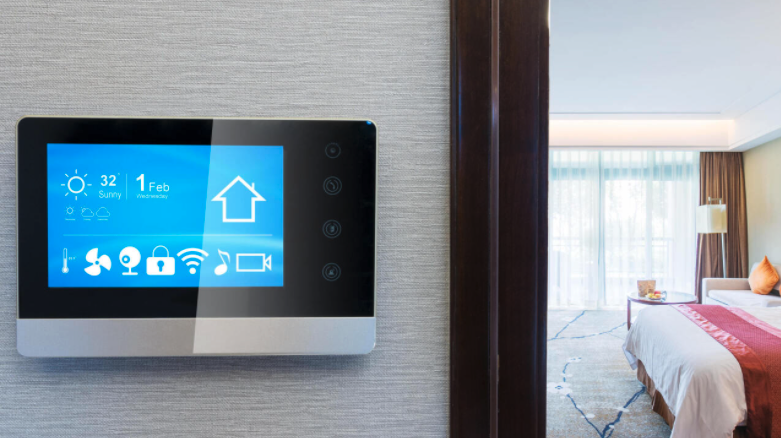
MDUs and Student Housing
Similarly, MDUs and student housing properties have been faced with rising costs, as well as aging infrastructure. As renovations occur, technology offers the potential to add amenities that draw renters away from the competition.
For example, smart solutions are a draw in many communities, bringing additional rental revenue and lowering energy use costs. Modern wireless solutions enable better connectivity and offer more options where traditional wired and wireless solutions may not work well.
Bundling connectivity and infotainment can lower costs and simplify implementation for residents while offering more options for personalized content. The right technology solutions here can turn a challenge into an asset.
Senior Living Properties
Senior living properties have also dealt with aging infrastructure, rising costs, and staff shortages. Technology such as the WorldVue Caavo solution can improve healthcare and resident services while lessening staff burdens and lowering costs.
Centered around a familiar but simplified and tailored TV interface, Caavo integrates communication, infotainment, and monitoring for higher quality care, improved resident satisfaction, and peace of mind for families. This creative use of technology offers more options for residents and enables staff to focus more on personalized care.
How is the general technology landscape changing as we move into 2024?
Before considering how the landscape is changing, it’s essential to recognize the big thing that isn’t changing. For hotels, the guest experience is still paramount. How your guests evaluate your property is strongly based on whether they had a top-notch experience during their stay. This is the case for residential properties as well.
Thus, your approach to your technology environment should emphasize creating great experiences for guests and residents. This means meeting and even exceeding their expectations where technology is concerned.

Hospitality Properties
To meet guest expectations, fast, reliable WiFi continues to be a necessity. We currently recommend upgrading to WiFi 6 at minimum for good performance. These upgrades are essential for accommodating the growing number of devices guests carry, as well as supporting applications such as streaming content and videoconferencing.
Even better would be to offer 6 GHz connectivity. With the rollout of 6 GHz networks to meet the WiFi 6E and WiFi 7 standards, hotels are improving their infrastructure to provide guests with faster and more reliable internet connectivity. As Nick Jones, EVP & CTO of WorldVue, points out, “With the introduction of the 6 GHz band, we’re opening up a lot more ‘lanes’ of wireless highway to use.” He adds, “We also have the option of wider channels with 6 GHz. Think of it as carrying what you can in your arms from one place to another versus having a wheelbarrow. 6 GHz enables exponentially more devices and more data.” The tradeoff for greater bandwidth is less distance, so APs will need to be placed more densely. But this will undoubtedly improve the guest experience by making WiFi less congested.
The expectations around in-room entertainment have changed. Guests now bring with them devices that can deliver the entertainment content they’re looking for. So while providing high-quality content to guests is still important, it’s also important to offer ways for guests to watch their own content on the in-room TVs. Demand has been increasing for streaming and casting options that make it easier for guests to watch what they want when they want.
Newer in-room entertainment options also enable additional information and functionality through the in-room TVs. For example, the informational guides that used to be printed and left in each room can now be delivered digitally. The entertainment interface can also display restaurant menus, provide unique content, display local weather and news, and even allow guests to check out or request service. As WorldVue President and COO Robert Grosz says, “It’s really evolved from an entertainment medium to an infotainment medium.”
Jones also highlights the need for new approaches to the in-room entertainment experience. “Today, either people want to know what to watch, or they already know what they want to watch, but they need to know where to watch it. We went from cable cutting to searching through all the various streaming services we’re subscribed to, trying to find which one has what we want to watch. This can be frustrating, especially when you finally figure it out, and then content moves from one service to another. This is where we take personalization to a much more sophisticated level.”
He describes WorldVue’s approach to that problem: “Once we learn what services you’re subscribed to, we can suggest content from any/all the services you subscribe to, as well as showing you the best place to watch what you want to watch now. We are working with streaming service providers to build a safe and secure method of storing your login credentials that will persist across all properties we serve today. Our goal is to give guests a better experience than what they have at home.
“During our guests’ stay, we anonymously learn what guests like to watch and what services they subscribe to. We aggregate this content centrally to provide a highly personalized ‘What to Watch’ screen comprising only content that we know you want to watch. We also provide a search function that intelligently knows what you already have access to and, if you don’t have access to specific content, where the most efficient place is to get access to that content.”
In terms of not just meeting but exceeding guest expectations, several types of offerings are coming to the forefront:
- Sustainable technology and IoT: Guests are increasingly seeking “green” properties. With Internet of Things (IoT) solutions, it’s becoming easier to implement better HVAC controls and smart building tech. These solutions enable properties to monitor and control energy use, building access, and more. Not only will this reduce resource consumption and costs, but it can also offer options for personalization.
- Personalization: The trend is to offer highly personalized experiences, especially for higher-end properties. This includes everything from tailored room settings to personalized recommendations and services based on guest preferences and past behavior. How would your guest experience change if you could, upon check-in, have their room pre-set for their preferred temperature, with the in-room speaker playing their favorite music in the background? By thinking creatively about personalization, properties can also find ways to use the infotainment platform to create truly memorable experiences.
- Enhanced security: There has been an increased focus on security to protect guest data and the hotel’s operations from cyber threats. AI also has the potential to help here by detecting and alerting for potentially problematic activity. Some hotels have even begun implementing biometric authentication for added security.
- AI and automation: Hotels are using AI and automation to streamline back-end operations and provide personalized guest experiences. For example, AI-based solutions can leverage data tied to loyalty profiles to predict guest preferences and provide personalized services. AI-based solutions can also automate simple, repetitive tasks so staff can focus more on delivering a great guest experience.
- Robotics: Partly to address staff shortages, more properties are exploring the use of robotics for various operations. Robots can perform some cleaning functions, and guests are often intrigued by robots providing concierge and food service functions.
Jones proposes that there are great possibilities for combining some of these offerings:
“If we can deploy IOT functionality, we can take personalization many steps further. Across all our properties, upon check-in, we can adjust the blinds, lighting, thermostat and even water temperature (both in the shower and the bathroom sink) to the way you had it the last time you stayed at any property we serve. We can build and implement these concepts based on moods or modes.
For example, when you’re sleeping, you like the lights, room temperature, and curtains set a certain way. You have similar patterns when you wake up, what you prefer when you arrive at the hotel, etc. We start by building default settings for each mood/mode. These are developed in conjunction with the property and by aggregating all guests’ preferences. We learn based on an aggregation of actions over time. We test our assumptions the first time a guest arrives in a WorldVue-enabled room. We learn your preferences and present them back to you at subsequent stays.”
However, with all these new technologies, owners and managers must take care not to remove the personal touch from guest interactions. While surveys have indicated that many guests prefer touchless options, the right kind of human contact at the right time can make the difference between a so-so experience and a great one.
Jones suggests that AI can even assist with this kind of personalization by gathering data and presenting it to inform staff and guest interactions:
“The whole point is to get as much information at the fingertips of as many of our employees that touch our customers. This way, the experience can be as personalized and intelligent as possible. Think about it – when you call tech support, your expectations are typically very low. If the agent on the other side of the phone knows my name, I perk up a little. If that agent recounts the issue I had before, that’s even more surprising. If that agent keeps me from having to repeat myself to everyone that I am transferred to, I’m blown away.
This is the scenario we’re trying to create. At a 5-star property, if the property staff has a spot to jot down important notes like your kids’ names, their ages, birthdays, small things revealed in casual conversation – as long as it’s used in a way that respects a guest’s privacy and preferred level of interaction, that presents an opportunity for an above-and-beyond experience.”
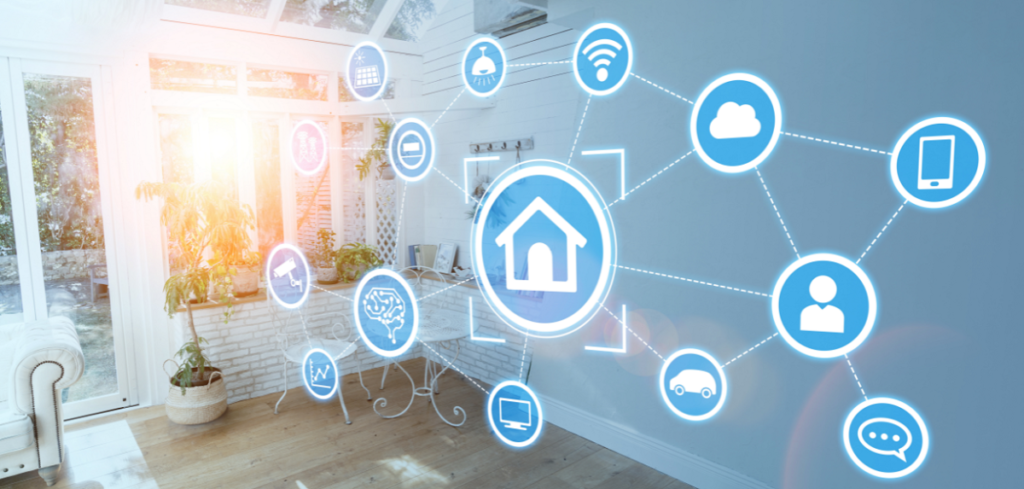
Residential Properties
In the residential space, well-performing WiFi is also crucial. Every modern technology solution that properties use depends on fast, reliable connectivity. Guests are also using more and more connected devices. Thus, properties are beginning to upgrade to 6 GHz WiFi (WiFi 6/7), improving their Internet connectivity to accommodate this growing number of connected devices.
Other trends we’re seeing in the residential space include:
- EV charging: The availability of on-premise EV chargers has become a big draw, attracting new and higher-quality residents.
- Smart home technology and access controls: Items such as smart locks, thermostats, and security cameras can improve operational efficiency while offering a better experience for residents. Guests particularly appreciate it when the mobile devices they already use can interface with these smart solutions. For example, guests can control temperature, humidity, and lighting with their phones and use mobile keys for building and apartment access.
- Package management: Automated package solutions can provide better security for packages while improving convenience for residents, who can use their phones to access designated package lockers.
- IoT and building automation: We’re seeing an increased interest in solutions for monitoring and maintaining building systems such as HVAC and water systems. These solutions can control the efficient use of systems for better use of resources at a lower cost. They can also detect and report potential issues, such as water leaks, before they become major problems.
What will guests and residents be looking for in 2024, and how can technology help address those expectations?
Again, your guest/resident experience must be great for your property to be a draw versus your competitors. In 2024, we expect guests and residents will be seeking several key offerings:
- Fast, reliable WiFi and generally a well-planned digital infrastructure to support the devices they bring. Again, connectivity is crucial for almost every aspect of modern life, so a slow or spotty connection will bring frustration. Upgrading to 6 GHz WiFi will significantly improve this experience.
- A mobile-centric focus. We describe this more below, but basically, you need to design around the fact that guests and residents want to be able to use their mobile devices to do almost everything.
- Choices. Guests and residents want options, such as the ability to watch their own content. Newer solutions for casting and streaming put guests and residents in control of their entertainment.
- Personalization. As noted above, there’s a trend toward greater personalization of experiences. Not every guest/resident wants the same experience, room settings, and amenities. AI-powered data analytics can help you assess individual preferences based on past behaviors to provide recommendations for future services, environmental settings, and more.
- Ease of use. Guests and residents expect fewer hurdles to everything they want/need to do. AI-based and automated solutions can help smooth their experience. A mobile-centric focus can also help with this. When choosing technology solutions, owners and managers should ask whether a solution will make things easier or more difficult for their guests and residents. For example, will a branded app enable guests to do everything from a single interface, or will it be perceived as one more app to download that isn’t helpful?
What hotel/residential technology development(s) are you most excited about in 2024 and beyond?
WorldVue President and COO Robert Grosz has highlighted the importance of open standards to support convergence. He notes that when you integrate across technologies, this convergence enables shared experiences in real time that can become something special. “Where tech is going, you want convergence. We live in a world of integration, but that can get risky when proprietary software is built, such as for WiFi. The innovation of convergence and being open is very powerful.” For example, discussions around OpenWiFi are an exciting development that will support greater convergence. Likewise, there is potential for apps to bring together technologies that will help solve problems and create new experiences because they’re not tied to a specific piece of hardware.
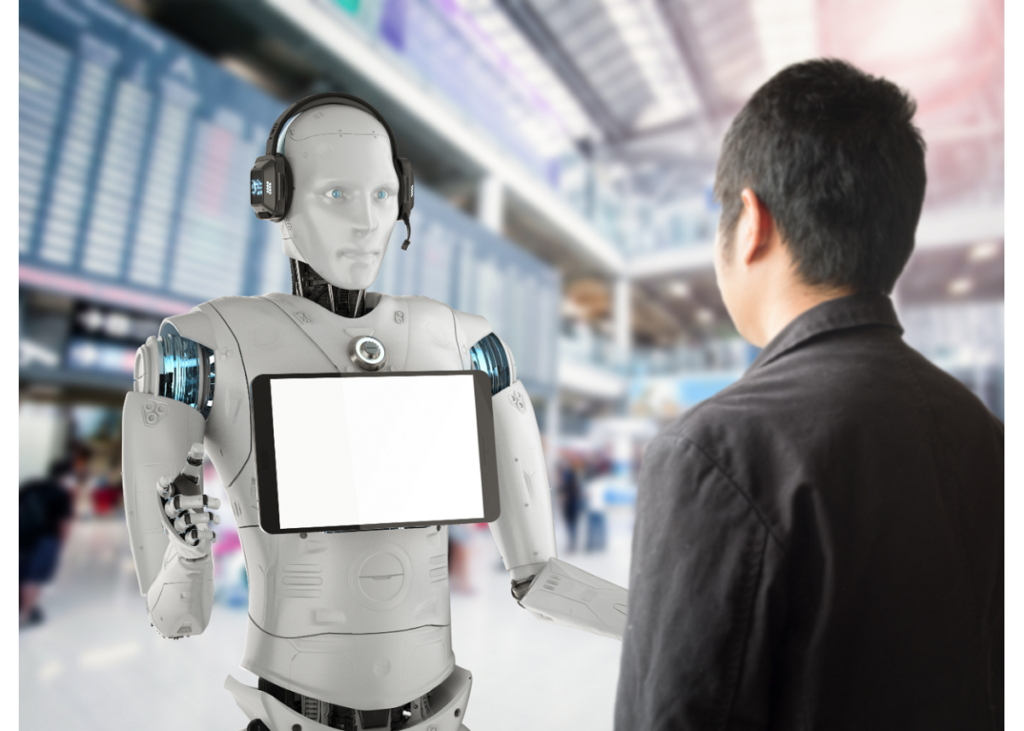
Speaking of integration, Grosz is also excited about the potential of AI and robotics together to transform the hospitality industry. Solutions that integrate AI and robotics have the potential to enhance guest satisfaction. For example, intelligent solutions can provide additional services and greater personalization while reducing wait times. Such solutions can also take some burdens away from staff, enabling them to focus on interactions where hands-on service makes more of a difference. AI plus robotics can also improve hotel operations, for example, by automating basic tasks and providing deeper insights into data-based decision-making. The key, as always, is to ensure that the solutions you implement actually do add to the guest experience rather than being “technology for technology’s sake.”
Grosz has also spoken about innovations in managed WiFi within the hotel space and the emerging potential for managed WiFi in multifamily dwellings. For hotels in particular, “The history is rocky. There has been some poor deployment and some excellent deployment. In an ideal world, you would use Passpoint for a seamless experience. This technology is evolving quickly. It’s an exciting area of development, and we are excited to be a part of it.”
Mark Schaps, WorldVue SVP and CIO, also shared some thoughts about important trends:
“In the hospitality sector, there’s a growing reliance on contactless technologies, such as mobile check-ins and keyless entry systems. Artificial intelligence (AI) is making waves by enhancing personalized guest experiences and predictive analytics for operational optimization.
“Continuing trends in hospitality include the rise of virtual concierge services and chatbots for enhanced guest interactions. Augmented and virtual reality applications are being explored to elevate guest experiences, providing immersive elements like virtual tours. Personalization remains a focal point, with hotels leveraging data analytics to tailor services and recommendations to individual guest preferences. Moreover, voice-activated assistants in rooms and public spaces are becoming increasingly common, offering guests convenient control and access to information. As the industry evolves, the emphasis on technology continues to redefine and elevate the overall guest journey in the hospitality sector.
“The hospitality industry is witnessing a surge in robotic services, revolutionizing guest experiences. Robotic concierge services, equipped with AI, assist guests with check-in processes, provide local information, and even deliver room service items. Robots are also employed for luggage handling and delivery within hotels. These technological advancements not only increase operational efficiency but also contribute to a futuristic and innovative ambiance, positioning hospitality establishments at the forefront of cutting-edge service. As these robotic services continue to evolve, they are reshaping the landscape of hospitality by offering a unique blend of efficiency and novelty.
“Residential properties are embracing the Internet of Things (IoT) for smart home automation, encompassing lighting, thermostats, and security. Energy-efficient technologies, coupled with sustainable practices, are becoming increasingly prevalent in both sectors. As we move forward, the convergence of these trends is likely to shape the future landscape of technology in hospitality and residential spaces.”
Nick Jones, WorldVue EVP and CTO, added some insights about the potential for technology to help create a touchless and frictionless experience:
“Being able to get into an Uber and go wherever you need to go, get out of the car, and not even say a word to the driver is amazing. Taxis stood no chance against Uber. The less friction, the better. We need to enable this for our customers’ guests. It’s the worst when you walk into a hotel – you’re on a conference call, you have all your luggage that you’re dragging into the hotel. The valet and door guy are bugging you to take your luggage, which takes forever to show up, if it even shows up without you having to call down to find it. Imagine instead an Uber-like experience – walking into the hotel, going directly to the elevator, walking to your room, walking right into your room, and seeing your name on the TV with the conference schedule on the screen. This is a night-and-day difference.
“There are a lot of moving parts that all have to work together correctly to enable that experience. It starts with mobile check-in, but that’s a summarization of many other things that must be done correctly in terms of reservations, room preparation and inventory, room allocation, stored payment options, etc. But guests don’t need to know about all that – they just need to know that it works. We need to make as many people happy as we can and make the experience as frictionless as possible.
“By the time you check in, all the hard work is done, and all that’s left is to verify who you are and get you a key. For this, we can offer mobile app check-in. But what do we do if your app is not working correctly, your phone battery dies, you don’t know your app password, or you just don’t want to mess with a mobile key? That’s where kiosks come in. They can be simple, just a computer station, or we can get fancy with a robot or a hologram of a front desk person that helps you.
“How do we identify you in this case? Clear is piloting a solution to identify you by facial recognition at the airport. This way, as long as you see a green light, you just keep walking through security. If what they ‘see’ doesn’t match, then they must identify you manually. We could use the same approach in a hotel. If we can identify you as you, then we can print your key card (or provide a mobile card), and it’s off you go, all while still on your conference call without having to talk to or acknowledge anyone.”
What do property owners/GMs need to watch out for in 2024 in terms of their technology solutions and infrastructure?
Grosz cautions that owners and managers “can’t lose sight of the fact that hospitality is about people.” To implement the right technology solutions, you need to consider guest expectations and what you’re trying to accomplish. This is true not only for hospitality properties but also residential properties; you’re still being evaluated on the quality of the experience you provide.
He also underscores that owners and managers shouldn’t look at technology only as an operating expense. A focus on long-term value – for example, how technology can help increase revenue, manage expenses, gain insight into costs, etc. – will yield better results.
Hospitality Properties
The three most important factors in hospitality used to be location, service, and value. Now, Grosz advises, mobility has become a critical factor. Guests expect to be able to do anything and everything desired with their mobile devices. Hotels need to be aware and intentional when designing space to accommodate this.
Specifically, your infrastructure needs to be designed to put mobile first because that’s what guests want. This is especially true when designing your WiFi and in-room entertainment solutions. You can add a mobile-centric focus through options such as mobile keys, a mobile remote to control the in-room TV, and a mobile interface to control the window coverings, HVAC, lighting, and more.

Jones agrees. “We live and breathe our phones. We should be able to do anything and everything on our phones. This is the most convenient thing for all of us these days. It’s not the only way to do things, but we believe in giving guests/residents the ability to do things the way they want. It’s our job to support how they want to do things.”
Remember that your staff and management also use mobile phones to work. So they need reliable communication in the form of fast, reliable WiFi and cellular boosting to avoid dead spots.
Grosz also stresses that “technology in a hospitality environment is not a check-the-box type of thing” where you decide on a solution for WiFi or entertainment and you’re done. When choosing a vendor, he suggests you research what they’ve done in venues similar to yours and whether it’s worked out well. Not every property is the same, and not every vendor can handle what your property needs. “They might be great people. They might be very local, right down the street. But if they don’t have the right experience, it’s not going to be the right fit.”
Residential Properties
WiFi in MDUs offers the potential for digital community and digital enablement. However, Grosz cautions that there is a lot of complexity to implementing managed WiFi in these environments – resident by resident, household by household, and community by community. Consider your goals for the solution, as well as your residents’ expectations. The right integrator can help design a solution that meets those goals and expectations.
If you had to choose only one technology for hotels and residential properties to invest in for 2024, what would that be and why?
Per Robert Grosz, “Digital infrastructure is as important as the roof over your head!” The rest of our team agrees – digital infrastructure is the foundation for all current and future technologies, enabling better experiences with greater personalization. To meet guest expectations now and into the future, you’ll need “an ironclad network – highly reliable and highly functional. If you don’t have a great network, you are going to have a lot of bumps in the road.”
Part 2 of our look at 2024 technology trends is coming in January. In it, we’ll examine 2023 customer data for WiFi and entertainment and make recommendations for a better experience in 2024.

